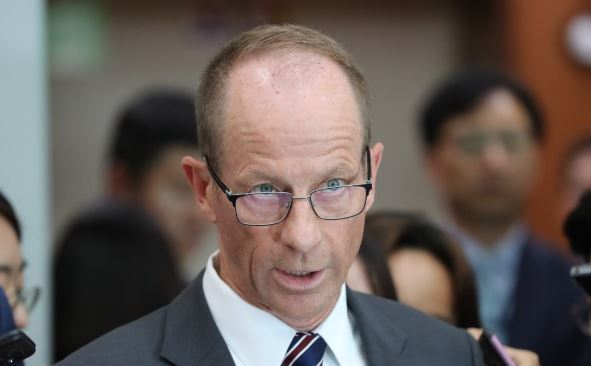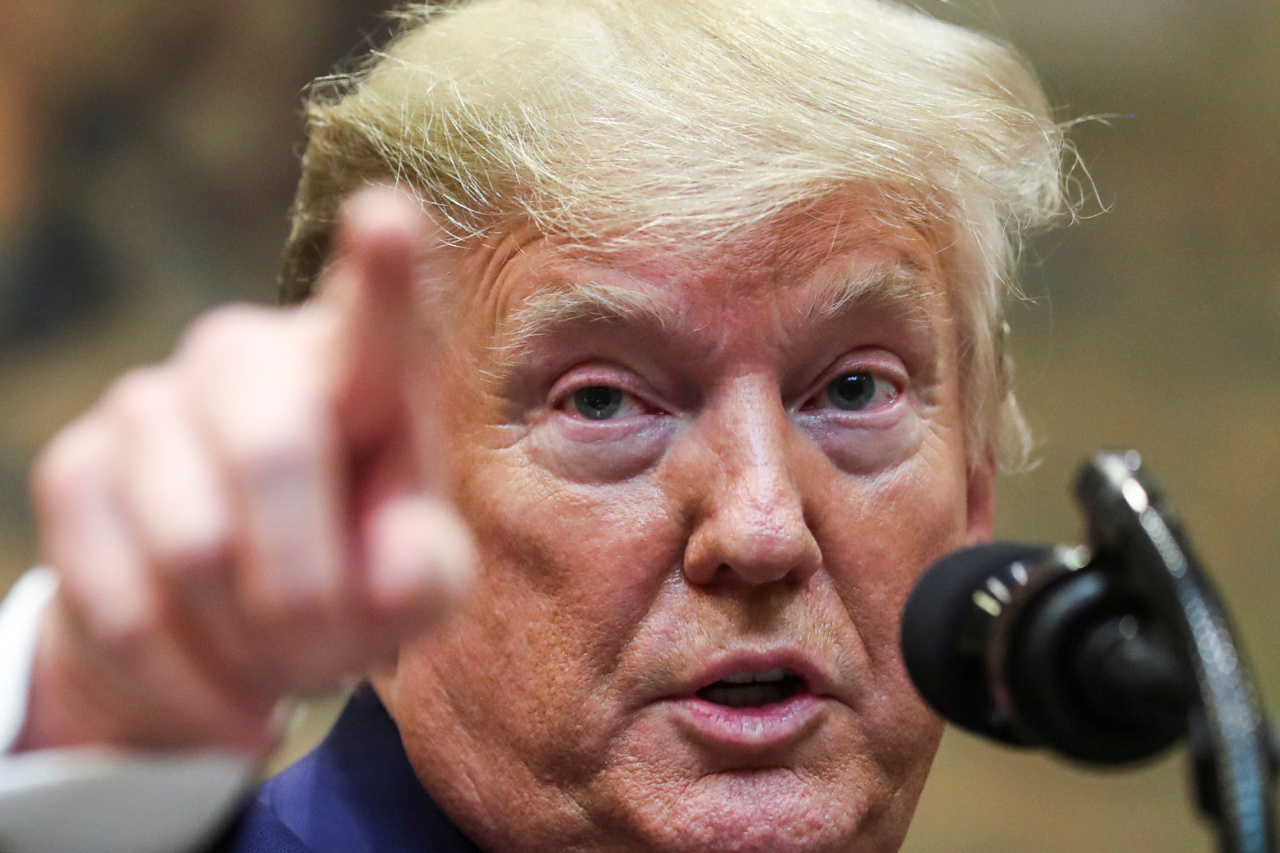The United States will address North Korea's security interests if the regime gives up its nuclear weapons program, a senior US official said Wednesday, beckoning Pyongyang to return to denuclearization talks.
David Stilwell, assistant secretary of state for East Asian and Pacific affairs, testified at a Senate hearing after working-level talks between Washington and Pyongyang broke down in Sweden on Oct. 5.
"They've come out to talk. We need to encourage them to continue doing that," Stilwell told the Senate Foreign Relations Subcommittee on East Asia.
 |
David Stilwell (Yonhap) |
"Special Representative (for North Korea Stephen) Biegun, I know, is working on engagement and trying to get these folks to the table to reassure them that their security interests -- we'd take those into consideration as we work through this problem," he added, referring to Washington's chief negotiator.
Security guarantees and sanctions relief are two of North Korea's biggest demands from the US in the on-again, off-again negotiations aimed at dismantling the regime's nuclear weapons program.
North Korean state media reported earlier that leader Kim Jong-un rode a white horse up Mount Paekdu, the highest peak on the Korean Peninsula, and complained of the "ceaseless sanctions and pressure by the hostile forces."
"There's only one thing that North Korea thinks about," Stilwell said in response to a lawmaker's question about North Korea's security interests. "A lot of these other things that they throw out there are distracters, leverage in some form."
The task at hand, he said, is to convince the North Koreans that they will be safer without nuclear weapons.
"In this security dilemma that we face, it's somehow convincing them that, you know, a massively overpowering US force truly will have their security interests, and they can successfully trade this nuclear program, which frankly makes them less secure, for US assurances," Stilwell said.
In a written statement submitted to the panel ahead of the hearing, the assistant secretary made clear that the US stands ready to resume "constructive discussions" with the North.
"Our goal is to achieve the final, fully verified denuclearization of the DPRK," he wrote, adding that the US is also willing to discuss the other agreements reached between US President Donald Trump and Kim at their first summit in Singapore in June 2018, including transforming the bilateral relationship and establishing a lasting peace on the Korean Peninsula.
 |
US President Donald Trump (Reuters-Yonhap) |
DPRK stands for North Korea's official name, the Democratic People's Republic of Korea.
The two sides have been at odds over how much the North should denuclearize before it receives sanctions relief and security guarantees from the US.
Stilwell noted that the sanctions imposed by the UN Security Council remain in effect, and called on the international community to continue to combat sanctions evasion attempts.
He also reiterated Washington's concerns about the deteriorating relationship between South Korea and Japan, saying their dispute over history and trade has "created an increasingly unsafe and unstable security environment in Northeast Asia."
In particular, he said Washington is concerned with South Korea's decision to end a military intelligence-sharing pact with Japan, known as the General Security of Military Information Agreement, and pointed to the potential implications in the wake of North Korea's Oct. 2 test of a submarine-launched ballistic missile.
"The value of arrangements such as GSOMIA to US, South Korean, Japanese, and regional security was underscored again recently with North Korea's Oct. 2 missile launches," Stilwell wrote in the statement, noting that the US has been meeting frequently with both sides to seek mutually agreeable solutions.
"While our position has been that we will not serve as a mediator between our two allies, this certainly has not precluded extensive engagement," he added. "We trust that our allies will prioritize our collective strategic interests, as they have in the past." (Yonhap)









